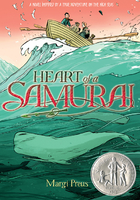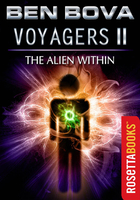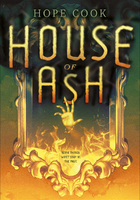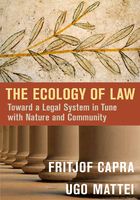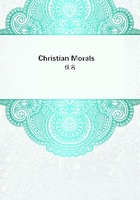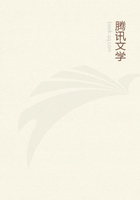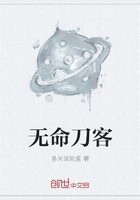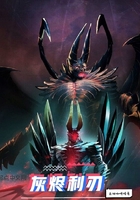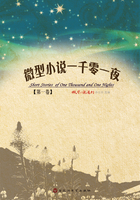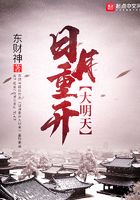Searching for the Beauty
"What a beauty to behold!" How often do we hear that phrase applied to an organization? To a person, a beach, a film, an automobile, a flower, a symphony, a soccer match, or a sunset maybe, but to an organization? Though each of us appreciates what is beautiful in our lives, we often think of it as something that happens outside of our work. The next three chapters are about discovering the beauty in the organizations around us; helping our senses pick up the shapes, sounds, scents, colors, movement, and tastes that we comb through in search of the beautiful. Those senses don't automatically shut down when we go to work, but many of us shut them down. When we do not expect to find beauty at work, we are less likely to find it. And of course, in many organizations there isn't much there. In the fairy tale, Belle had to look long and hard to find the beauty she hoped the Beast held. She was rewarded; we may or may not be.
But beautiful organizations are possible too. In fact, you likely have seen a few in operation: when a family does a particularly good job of piling everything in the car for a week's vacation; or when a work team spins off into a highly creative session; or when the school Parent Teachers Association cooperates to bring new learning to the classroom. There are millions of small examples like these that express or hint at beauty and its larger possibilities in an organization.
In our companies and agencies, departments and divisions, we need to know what beauty is if we are to see it or create it. We need ideals to compare with our experience—just like in any other realm where beauty is valued. And that is what this part of the book is about: our ideals and aspirations for organizations. When we can imagine or know what we want, we will more likely be able to find it or create it. Imagining and knowing comes before creating the beautiful organizations we would like to experience more often. Through these chapters, we will gain glimpses of beauty now present in the organizations we serve. Imagining beautiful future organizations is not normally an executive pastime, and discovering the beauty already present is a challenge to most of today's organizations.
There must be beauty within this beast; the present organization must hold within itself the potential to be seen as beautiful by many people. If there is nothing there to please the eye, the mind, the heart of anyone, the organization lacks the healthy essence needed to thrive for the benefit of itself, its members, and the world around it. Others may choose to support it, but you do not have to. You can choose to leave, to take your search for life somewhere else. Part Two will help you consider what you want from organizations, what potential you are fulfilling. It will help you put your aspirations for organizations beside the realities you faced in the first part of this book. This is the most reflective part of the book; it asks you to think deeply and not take any action… yet. Be patient with yourself and what these chapters ask of you; it's groundwork for the commitment you need to renew organizations.
Some Stimulating Assumptions
How do we rethink what organizations are about? What can we do to make it more likely we will step outside the boundaries defined by our long experience with these huge creatures? A good place to start is by challenging our reinforced experience and perspective, by questioning our implicit assumptions built from years in traditional organizations. In fact, more than questioning them, replacing them. We are more likely to reach a new place when we start off with different assumptions; we are more likely to end up someplace we are unaccustomed to, and that is at least movement, if not progress.
I decided to look at organizations using some assumptions that feed the richness of human life. Bear with me on these; you may find yourself supporting these assumptions or questioning them. That matters less than striking out in a new direction. I have chosen one; you could chose another. That said, here are some assumptions that, when acted on, feed a healthy human life:
Intentional actions do not yield predictable, understandable results. We do not know how much difference we are making with anything we do. Any measures we attempt, though useful, focus on a shallow and narrow portion of what difference we make. This assumption allows us to respect the natural chaos (or larger, as yet unknown order) that surrounds us, rather than act as if we are in control of everything.
Pursuing new learning is in itself valuable even when the destination is unclear—perhaps especially when the destination is unclear. Learning is partly a process of discovering what is happening anyway, and then following it. This assumption values the process of learning more than its outcomes.
We are reaching for and contributing to outcomes we will never see. We are like laborers on a medieval cathedral: We do our work, we imagine what we are building, yet we never see the work completed. It is work worth doing—and hopefully our great-great-great-grandchildren will be present and proud at the dedication. Our important work joins the work of others over generations of generations— whether we are aware of it or not . This assumption moves us beyond the timeframe of our lives and away from the egocentric implication that everything worth our work will happen in our lifetime.
These assumptions are at odds with the organizational traditions most of us have grown up within. They do not attempt to secure the predictability and control that defines so much of what organizations are about. They don't seek security; they presume less and leave much more for us to discover. Perhaps they lead toward too little of the structure we need for organizations to work. Or maybe they will stimulate some new ideas that will help revitalize organizations.
Past and Present and Possibility
We often assume that if we know an organization's Past, that will help us understand its Present, and that will point us toward its Future. Many of us grew up within that logical, linear sense and are not finding it all that useful. Too often, it just does not work. We need new assumptions that lead us to a Future with more organizational possibilities; that's what our earlier list was doing. Let's extend that list of assumptions with five related to time:
We are creating the Future now whether we are aware of it or not. The Future is happening regardless of what we do about it. Our challenge is to become aware of our role in creating the Future. We can impact the Future now, rather than waiting to see what will happen to us later.
The Future is not projected from the Past and through the Present; it is not simply an extension of what we already know.
Immersion in the Present and Past keeps us from clarifying the Future we aspire to. We cannot see the wide array of Future possibilities while wrapped up in today. We must temporarily step out of today's frameworks and assumptions to get a glimpse of tomorrow's possibilities.
Clarity about our Future aspirations allows us to see the Present and Past in a new way, with new opportunities. When we hold on to these Future aspirations, they influence our every action. We imagine where we want to go, and then use that imagined destination to guide us in what we do now. We can be guided as much by what we want as by what we know.
Implementing our Future aspirations requires appreciating the Past and Present, while making their connection to the Future visible and tangible to others.
Though we separate Past, Present, and Future, they are connected, dependent on each other. Building walls between them distorts the reality of their overlap, their simultaneity. When we deal with one, we are dealing with the other two; we cannot really choose to deal with them separately. Renewing an organization requires clear aspirations informing Past, Present, and Future. Renewing requires breathing life into the organization now. The next three chapters build from these assumptions.


